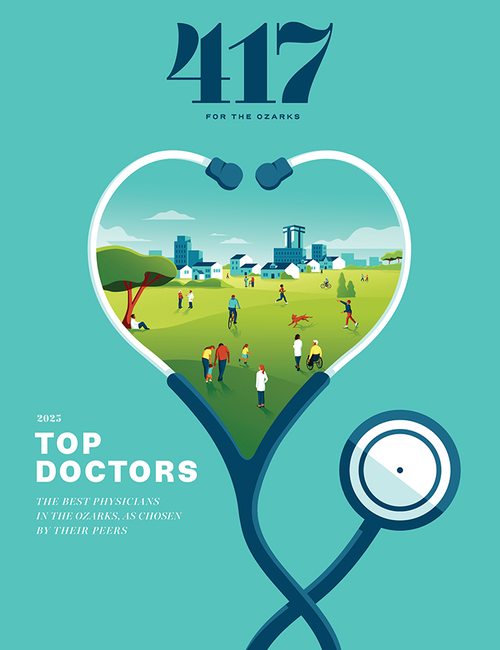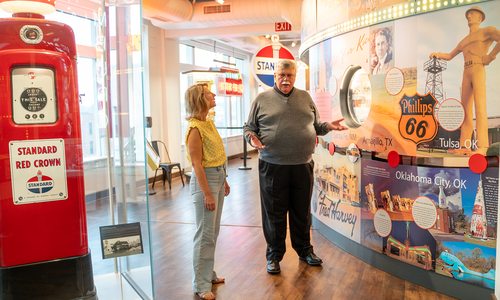
Lifestyle
Medical Roundup
The last year has brought a whirlwind of activity to Springfield’s thriving medical scene. New programs have kicked off, new clinics have opened for business and new partnerships have formed, so we decided it was time to check in and see how things are go
By Ettie Berneking | Rendering by Cannon Designs
Nov 2015

MU Springfield Clinical Campus
After a nearly eight-year process, the first round of University of Missouri medical students will be relocating to Springfield to complete their training and education at the School of Medicine’s new Springfield Clinical Campus. The new campus is set to welcome students starting in June 2016.
While medical students will be studying and completing clinical work in Springfield, they won’t have a new medical school to work out of. “A new school would cost five to eight million dollars,” says Weldon Deskin Webb, associate dean for the Springfield Clinical Campus implementation. “This is a more cost effective way to draw more
physicians to southwest Missouri and meet the area’s needs.”
Students will rotate through clinics at CoxHealth and Mercy Springfield health systems. The new collaboration between MU, CoxHealth and Mercy should help MU enroll an additional 32 medical students each year, which is expected to add 300 physicians practicing in Missouri.
Students will spend their first two years studying in Columbia before they move down to Springfield to finish their third and fourth years of clinical training in smaller class sizes.
“Working with both hospital systems was a requirement to move the new campus down here, and it’s worked great,” Webb says. “These two hospitals are very competitive clinically, but when it comes to education they’re not competitive. It makes a much richer learning environment.”
The Springfield Area Chamber of Commerce and Missouri State University are helping iron out the final details, and the new Springfield campus is about to open for business.
MSU Occupational Therapy Program
This fall, the new O’Reilly Clinical Health Sciences Center opened its doors to much praise, and
programs including MSU Occupational Therapy now have a new home.
This is great news for Kathryn Hope, department head of nursing for MSU. “This is huge,” she says. “We were packed into the current building and didn’t have enough labs or space. This provides new classrooms for all of us.”
Besides providing new skills laboratories, offices and group study spaces for the occupational therapy, physician assistant studies, nursing, and nurse anesthesia programs, the building is the new home for the MSU Care Clinic—a joint venture between Mercy and MSU to provide care for the uninsured.
“It’s really exciting,” Hope says. “This will provide interdisciplinary care.” The new clinic is expected to see some 750 patients a year.
UMKC Doctor of Pharmacy
Springfield Campus
It was a little more than a year ago when Missouri Governor Jay Nixon and leaders from Missouri State University and the University of Missouri-Kansas City met in Springfield to announce a new union that would allow UMKC’s Doctor of Pharmacy degree program to open a satellite location inside Brick City in downtown Springfield. Now, the program is going strong and the second class of pharmacy students has taken their seats.
“A lot of data shows that when students take their first job, there is typically a relationship there,” says UMKC Associate Dean Paul Gubbins. “They worked at that pharmacy, or they did a rotation there, so where we put them in the community has a role in where they get their first job.”
“Our goal is to have four classes here at the MSU site,” Gubbins says. “We are shooting for 120 students total, and we have a good pipeline with MSU, Drury and other surrounding universities, so we’re excited about that.”
One of the biggest draws about the new site is its ability to introduce students into clinical settings much earlier in their schooling. “We are still teaching compounding and pharmacy basics,” Gubbins says, “But the new focus is on instilling a wealth of clinical experience and getting them in a patient setting much earlier.”
Students are instructed by faculty that have practice sites at area health centers and develop interprofessional partnerships with other
MSU health programs. “This is a big push in healthcare today,” Gubbins says. “So we want to give students teamwork building opportunities with other professions.
Pharmacists can help so much with team-based care, which then helps the patients.”












